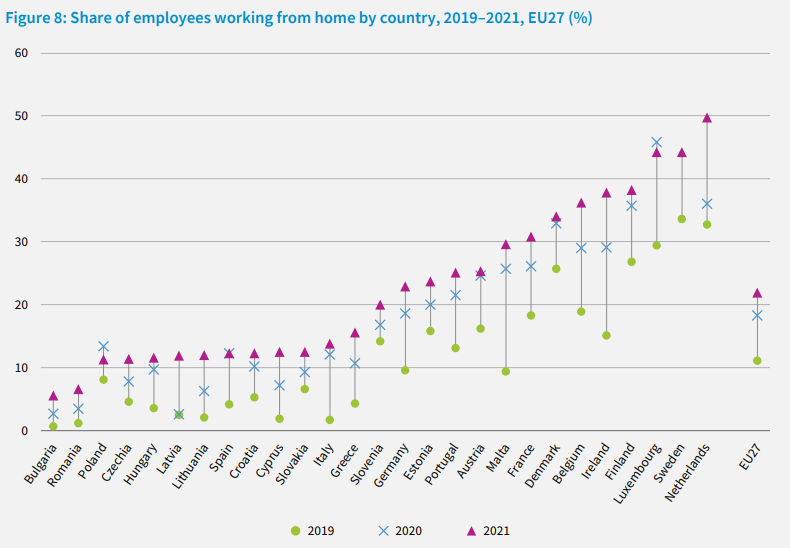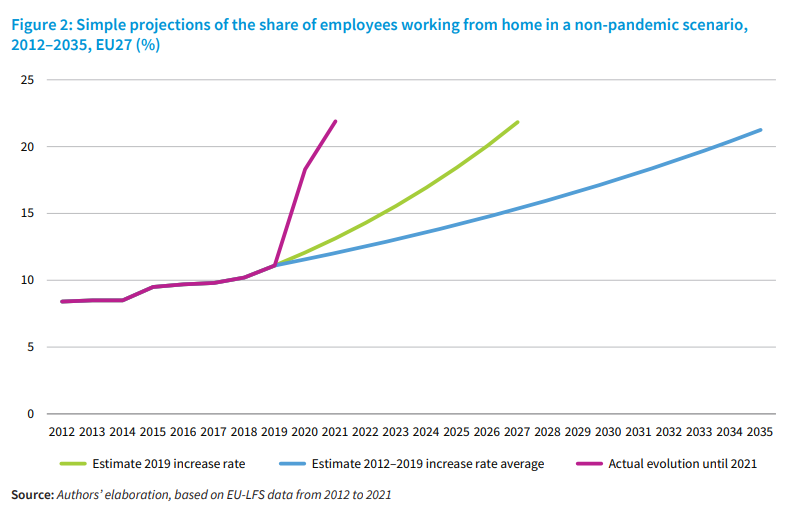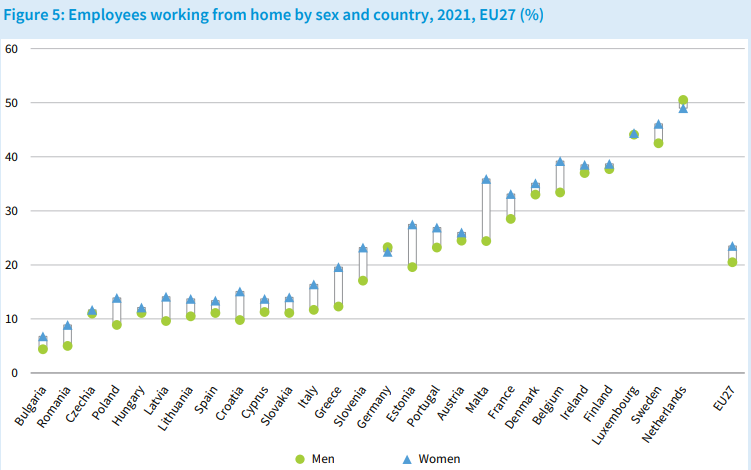Despite COVID-19 being on its way out, teleworking, a phenomenon which became a necessity for many businesses during the pandemic, is here to stay. Malta ranks among the top countries that have embraced remote working within Europe, which has its benefits.

Malta saw a 20 per cent increase in teleworking over two years, from fewer than 10 per cent of workers teleworking, to more than 30 per cent. A report by Eurofound, found that teleworking is expected to continue increasing in the long-term as technology develops further. This trend was already in place prior to the pandemic, however, was accelerated because of it.

It was generally service sector workers from urban areas who were most likely to telework, with women opting for it more often than men. In fact, the difference in genders working remotely is starkest in Malta, with roughly 10 per cent more women working remotely than men.
However, women were less able to balance teleworking with their private lives during the pandemic, due to pre-existing inequalities and gender roles. This put the brunt of additional unpaid work on women (home-schooling, housework, etc).

What helped workers adapt to working remotely, was being provided with the information and tools needed ahead of time, with 64 per cent of Malta’s workers feeling supported by their companies.
Interestingly, Malta is one of a few countries which gives workers the right to refuse to telework and is among a minority of EU member states which have regulations on teleworking and flexible working time. Furthermore, there are restrictions to what extent employers can monitor employees, especially when it concerns the worker’s privacy or health.
The biggest impact on working conditions, however, was the pressure workers felt to be ‘permanently’ available, which blurred the lines between private and work-life. However, overall, the teleworking arrangements were a net-positive for work-life balance, as they allowed workers to better balance childcare, spend less time commuting and increase worker autonomy, resulting in increased productivity.
The way forward, however, is likely a hybrid arrangement. This was seen as the more preferred arrangement among both employees and employers. Hybrid work was found to reduce the feeling of isolation and improved time-management.
db Foundation raises €8,419 for Karl Vella Foundation with MasterChef Malta Charity Dinner
These events form part of the db Foundation's ongoing commitment to supporting vulnerable members of society through impactful initiatives
Residential property prices rise by 5.7% in first quarter of 2025
The new figures show continued growth in Malta’s property sector
Youth4Entrepreneurship Gozo 2025: Youth invited to propose innovative digital solutions
The initiative aims to empower youth to become active contributors to Gozo’s development by addressing local challenges






